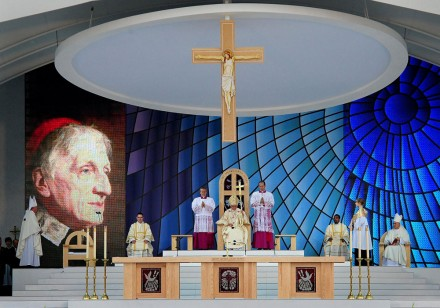
Only weeks before the beatification of Pope John Paul II, the Congregation for the Causes of Saints issued some new procedures for beatification ceremonies that will help distinguish them from canonizations, in which the Pope infallibly declares a Servant of God to be a “saint.”
During the first Christian millennium, the cult of martyrs and other holy men and women was regulated by local Church authorities. In the 11th century, however, the principle that as universal Pastor of the Church the Roman Pontiff alone has the authority to prescribe a public devotion began to gain prominence. With a Letter to the King and Bishops of Sweden, Alexander III asserted the Pope’s authority to confer the title of Saint and the relevant public cult. This norm became a universal law with Gregory IX in 1234.
In the 1300s, the Holy See began to authorize devotions limited to specific places and to certain Servants of God whose cause for canonization had not yet been initiated or had not yet reached its conclusion. This concession, with a view to future canonization, led to the preliminary stage known as beatification, in which a holy man or woman is declared a “Blessed.”
The Vatican document highlights the essential differences between a canonization and beatification:
“Canonization is the supreme glorification by the Church of a Servant of God raised to the honors of the altar with a decree declared definitive and preceptive for the whole Church, involving the solemn Magisterium of the Roman Pontiff. . . .
“Beatification, on the other hand, consists in the concession of a public cult in the form of an indult and limited to a Servant of God whose virtues to a heroic degree, or Martyrdom, have been duly recognized.”
The changes in the ceremony are meant not only to emphasize more clearly the substantial difference between a beatification and canonization, but also to involve the local Churches more visibly in the beatification rites of their respective Servants of God.
While Pope Benedict will beatify John Paul in Rome, most beatifications will take place in the home diocese of the Servant of God by the local bishop. A delegate of the Holy Father will be present to read the apostolic letter conferring the title “Blessed.”
For more on this subject, click here.